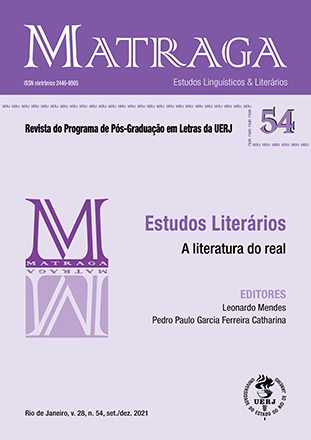Tales of a fallen empire: the case of Maria Fagyas
DOI:
https://doi.org/10.12957/matraga.2021.58645Keywords:
Historical novel of manners, Temporal configurations, Spatial configurations, Chronotopes, Eastern Europe.Abstract
Maria Fagyas, a Hungarian author, began to write rather late, because of the bloody invasion of her native country by the troops of the Warsaw Pact in 1956. After the success, she plunged not only into Hungarian history but into that of a vanished Empire. In this article, we analyze the relationship between space and time in Fagyas’s novels translated into French, on three levels: 1. the requirements of the esthetics of realism, 2. the socio-historical reality in relation to the plot (configurations of time and place ordered by the plot), 3. the readers’ experiences aroused by this representation. Except for his first novel, The Fifth Woman, which was closer to the time of writing, Fagyas’s stories create a fictional universe and offerr a representation of what can be called Mitteleuropa, captured in a crucial moment, before and just after the disappearance of the empires (Germany and the Austro-Hungarian Empire). The analysis allows us to identify a type of aspectual chronotope that presides over Fagyas’s novelistic representation, a deeply dysphoric one, which can be qualified as that of decadence, both on the individual and collective levels.
---
Original in French.
Downloads
Downloads
Published
How to Cite
Issue
Section
License
Authorization
Matraga – Scientific Journal of the Post-graduate Program in Arts and Humanities of UERJ is authorized to publish the article submitted here, if it is accepted for online publication. It is attested that the contribution is original, that it is not being submitted to another publisher for publication, and that this statement is the expression of truth.
The works published in Matraga's virtual space – Scientific Journal of the Post-graduate Program in Arts and Humanities of UERJ will be automatically transferred, and your copyright is reserved to Matraga. Its reproduction, in whole or in part, is conditional on the citation of the authors and the data of the publication.

Matraga uses license Creative Commons - Attribution-Non-Commercial 4.0 International.





